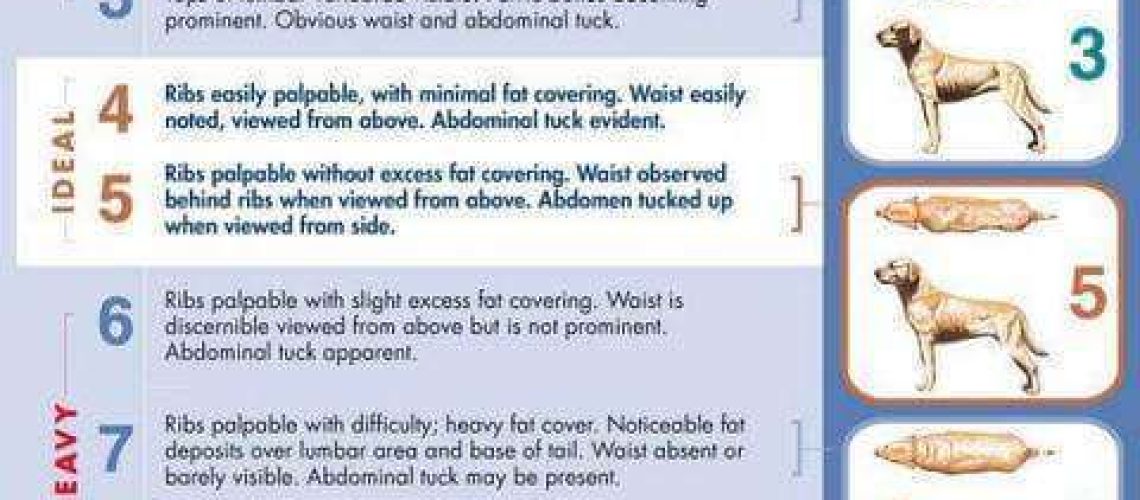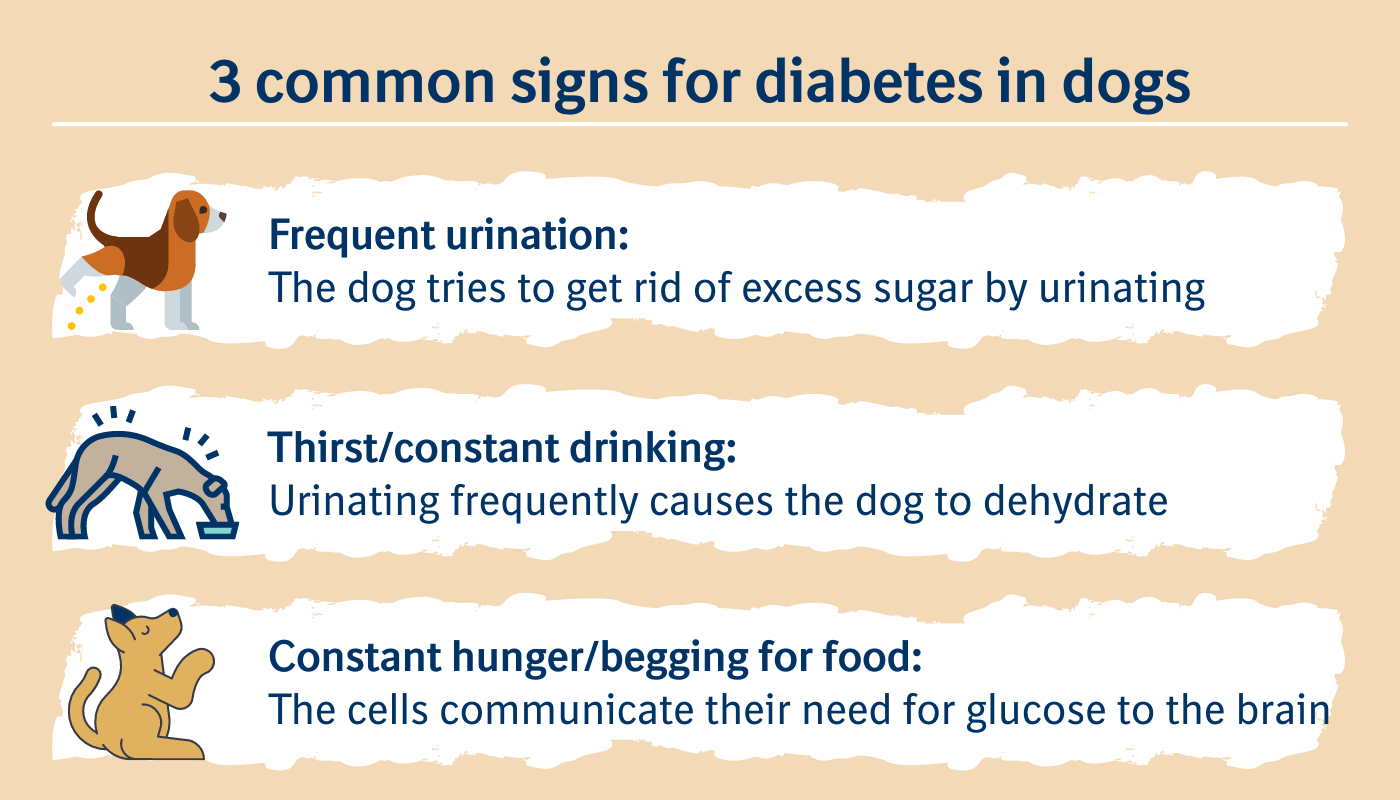Key Takeaways:
- It is important to maintain a healthy weight for your dog to prevent obesity-related health issues.
- The ideal weight for your dog depends on its breed, age, and activity level.
- Regular exercise and a balanced diet are crucial for maintaining a healthy weight in dogs.
- Obesity in dogs can lead to various health problems such as joint issues, diabetes, and heart disease.
- Consulting with a veterinarian can help determine the appropriate weight range for your dog and provide guidance on achieving and maintaining it.
Are you a proud dog owner? Do you want to ensure the health and well-being of your furry friend? If so, then understanding how heavy your dog should be is essential. Not only does maintaining a healthy weight contribute to your dog's overall happiness, but it can also significantly impact their lifespan. In fact, studies have shown that overweight dogs are more prone to developing serious health issues such as diabetes, heart disease, and joint problems. So, if you're ready to dive into the world of canine weight management, read on! Discovering the ideal weight for your dog is not only fascinating but also vital for their long-term health and vitality.
What is the ideal weight range for a dog?
The importance of maintaining a healthy weight for your dog
Maintaining a healthy weight is crucial for your dog's overall well-being. When dogs are at their ideal weight, they have more energy, better mobility, and a reduced risk of developing various health problems. Just like humans, dogs can become overweight or underweight, and both conditions can have negative effects on their health.
Overweight dogs
When a dog is overweight, it means they have excess body fat. This can lead to serious health issues such as diabetes, heart disease, joint problems, and respiratory difficulties. Overweight dogs may also experience decreased stamina and difficulty performing physical activities. It's important to note that certain breeds are more prone to weight gain than others.
Underweight dogs
On the other hand, if a dog is underweight, it means they don't have enough body fat or muscle mass. This can be caused by various factors such as poor nutrition or underlying health conditions. Underweight dogs may have a weakened immune system, lack energy, and be more susceptible to infections and illnesses.
To determine if your dog is at an ideal weight or not, you can use a simple method called body condition scoring (BCS). This involves assessing your dog's body shape and feeling their ribs and spine. If you're unsure about your dog's weight or need guidance on how to maintain it within the ideal range, consult with your veterinarian who can provide personalized advice based on your dog's breed, age, and activity level.
How does a dog's weight affect its overall health?
Maintaining a healthy weight is crucial for a dog's overall well-being. When a dog is overweight, it puts extra strain on their joints and can lead to conditions like arthritis. Additionally, excess weight can contribute to heart problems and high blood pressure in dogs, just like in humans. Obesity also increases the risk of developing diabetes, as it affects the body's ability to regulate blood sugar levels. Moreover, an overweight dog may have difficulty breathing properly and may become more prone to respiratory issues.
The Impact on Lifespan
Being overweight can significantly reduce a dog's lifespan. Studies have shown that obese dogs tend to live shorter lives compared to those at a healthy weight. This is because obesity increases the risk of various diseases and health complications that can ultimately lead to premature death.
The Importance of Balanced Nutrition
To maintain a healthy weight, it is essential to provide your dog with balanced nutrition. Feeding them high-quality dog food that meets their specific dietary needs is crucial. Avoid giving excessive treats or table scraps as they can contribute to weight gain. Regular exercise is also vital in keeping your furry friend fit and maintaining their ideal weight.
Why is it important to maintain a healthy weight for your dog?
Maintaining a healthy weight for your dog has numerous benefits for their overall health and well-being. Firstly, it helps prevent various health issues such as joint problems, heart disease, diabetes, and respiratory difficulties. Secondly, dogs at a healthy weight are generally more active and energetic, allowing them to enjoy their daily activities without discomfort or fatigue.
Enhanced Quality of Life
When your dog maintains an appropriate weight range, they are more likely to have improved mobility and agility. They will be able to run, jump, play fetch, and engage in other physical activities with ease. This not only enhances their quality of life but also strengthens the bond between you and your furry companion.
Reduced Risk of Chronic Diseases
Obesity is a significant risk factor for various chronic diseases in dogs, just as it is in humans. By keeping your dog at a healthy weight, you can significantly reduce their chances of developing conditions such as diabetes, heart disease, and certain types of cancer. Regular veterinary check-ups can help monitor your dog's weight and identify any potential health concerns early on.
How can you determine if your dog is overweight or underweight?
Determining whether your dog is overweight or underweight requires observation and evaluation. One simple method to assess their weight is by feeling their ribs. When gently running your hands along their sides, you should be able to feel the ribs without excessive fat covering them. If the ribs are difficult to locate or there is a thick layer of fat over them, it may indicate that your dog is overweight.
Body Condition Scoring
Another effective way to evaluate your dog's weight is by using a body condition scoring system. This system involves visually assessing your dog's body shape and comparing it to reference images provided by veterinarians or reputable sources. The scoring system typically ranges from 1 to 9, with 1 being severely underweight and 9 being extremely obese.
Consulting with a Veterinarian
If you are unsure about your dog's weight status, it is always best to consult with a veterinarian. They have the expertise to accurately assess your dog's body condition and provide guidance on maintaining an ideal weight for their breed and size.
Common health problems associated with overweight dogs
Being overweight can lead to several health problems for dogs. These issues can significantly impact their quality of life and may require medical intervention to manage effectively.
Joint Problems
Excess weight puts additional strain on a dog's joints, leading to conditions such as arthritis. The extra pressure on the joints can cause pain, stiffness, and reduced mobility. Over time, this can severely impact a dog's ability to move comfortably and enjoy physical activities.
Heart Disease
Obesity increases the risk of heart disease in dogs. The heart has to work harder to pump blood throughout the body when there is excess weight, leading to high blood pressure and potential heart problems. This can result in decreased energy levels, difficulty breathing, and even heart failure if left untreated.
Diabetes
Just like humans, dogs can develop diabetes due to obesity. Excessive fat tissue affects the body's ability to regulate insulin properly, leading to high blood sugar levels. Diabetes requires careful management through diet, exercise, and sometimes medication.
Respiratory Issues
Being overweight can make it challenging for dogs to breathe properly. Extra weight puts pressure on their lungs and airways, making it harder for them to take deep breaths. This can lead to respiratory difficulties and increased susceptibility to respiratory infections.
Factors that contribute to a dog being overweight
Several factors can contribute to a dog becoming overweight or obese. Identifying these factors is essential in preventing weight gain and maintaining a healthy lifestyle for your furry friend.
Dietary Habits
Feeding your dog excessive amounts of food or providing calorie-dense treats can lead to weight gain over time. It is important to follow recommended feeding guidelines based on your dog's age, breed, size, and activity level. Avoid free-feeding (leaving food out all day) as it makes portion control difficult.
Lack of Exercise
Insufficient physical activity is a common cause of weight gain in dogs. Dogs need regular exercise to burn calories and maintain a healthy weight. A sedentary lifestyle can lead to weight gain and various health problems.
Age and Breed
Certain dog breeds are more prone to weight gain than others. Additionally, as dogs age, their metabolism slows down, making it easier for them to gain weight. It is important to adjust their diet and exercise routine accordingly as they grow older.
Medical Conditions
Some medical conditions or medications can contribute to weight gain in dogs. Hormonal imbalances, hypothyroidism, or certain medications may affect a dog's metabolism and lead to weight gain. If you suspect an underlying medical condition, consult with your veterinarian for proper diagnosis and treatment.
Tips for helping your dog achieve and maintain a healthy weight
Maintaining a healthy weight for your dog requires commitment and consistency. Here are some tips to help your furry friend achieve and maintain an ideal weight:
Portion Control
Measure your dog's food portions according to the recommended guidelines provided by the manufacturer or your veterinarian. Avoid overfeeding or free-feeding, as this can lead to excessive calorie intake.
Regular Exercise
Engage your dog in regular physical activities such as walks, playtime, or interactive games like fetch. Aim for at least 30 minutes of exercise per day, adjusting based on your dog's breed, age, and overall health.
Avoid Table Scraps
While it may be tempting to share human food with your furry companion, table scraps can contribute to unwanted weight gain. Stick to a balanced diet specifically formulated for dogs.
Choose Nutritious Treats
If you want to reward your dog with treats, opt for low-calorie options or use their regular kibble as treats during training sessions. Be mindful of the quantity and frequency of treats to avoid excessive calorie intake.
Regular Veterinary Check-ups
Schedule regular check-ups with your veterinarian to monitor your dog's weight and overall health. They can provide guidance on nutrition, exercise, and any necessary adjustments to help your dog maintain a healthy weight.
Remember, maintaining a healthy weight is essential for your dog's well-being and longevity. By following these tips and providing them with a balanced diet and regular exercise, you can ensure that your furry friend leads a happy and healthy life.
In conclusion, the weight of your dog should be determined by its breed, age, and overall health. It is important to consult with a veterinarian to ensure your dog maintains a healthy weight for its well-being.
How do I know if my dog is good weight?
Check if you can easily feel your dog's ribs without applying too much pressure. If the ribs are not very prominent and can be felt easily, then your dog is in good shape. However, if your dog is overweight, it may be difficult to feel the ribs due to excess fat.
Is 10 pounds heavy for a dog?
A dog is considered medically obese if they weigh 20% more than they should. For example, a dog that should weigh 50 pounds but weighs 60 pounds or more, or a dog that should weigh 10 pounds but weighs 12 pounds or more, would both be considered medically obese.
Is 70 pound dog big?
What Dogs are Classified as Large Breed? Dog breeders have developed a comprehensive system for categorizing dog sizes. According to this system, a dog must weigh at least 50 pounds (sometimes 70 pounds) and have a height of approximately 24 inches to be classified as a large breed.
Is 45 lbs big for a dog?
What is the size range for medium-sized dogs? Typically, dogs weighing between 30 pounds (14 kg) or less are categorized as small dogs, while breeds weighing over 55 pounds (25 kg) are classified as large dogs. Therefore, medium-sized dogs encompass a broad range of body weights.
How can I tell if my dog is too skinny?
If you can see your dog's ribs, lumbar vertebrae, pelvic bones, and other prominent bones from a distance, they are considered too thin. They will have little to no body fat and a noticeable decrease in muscle mass. The ribs, lumbar vertebrae, and pelvic bones will be clearly visible.
Is my pet a healthy weight?
Examine your pet from different perspectives to determine their weight. If they appear round and oval-shaped, it may indicate that they are overweight. On the other hand, if your pet has a distinct waist and rear, they are likely to be in a healthy weight range.

















